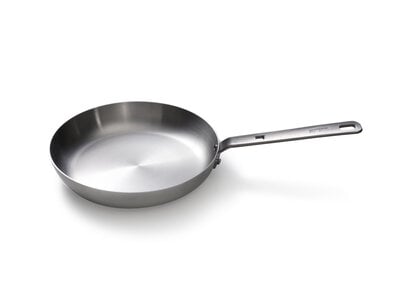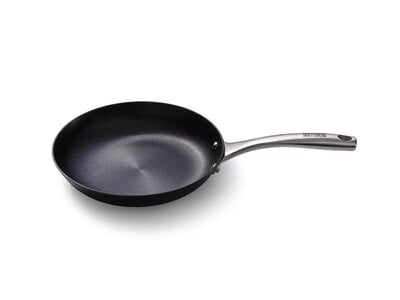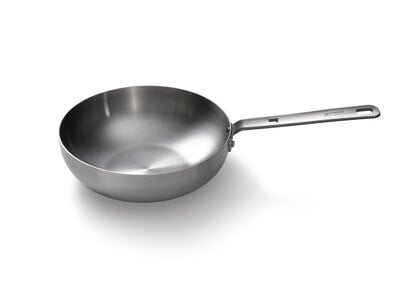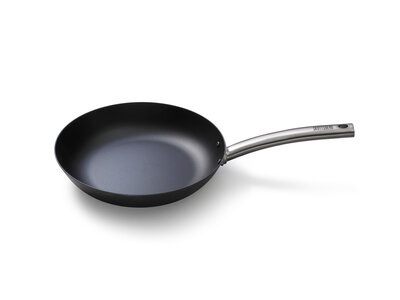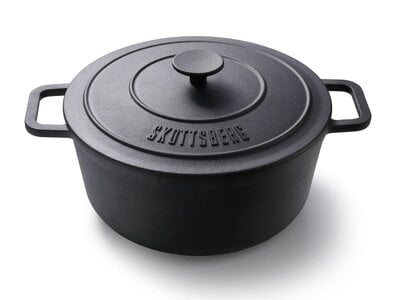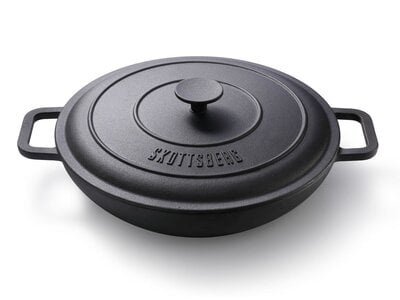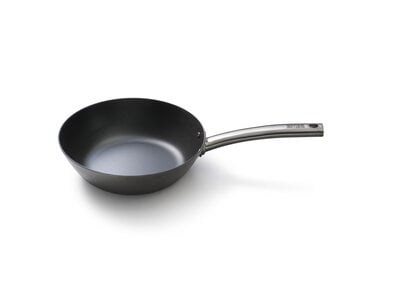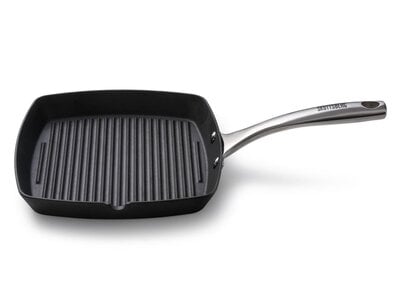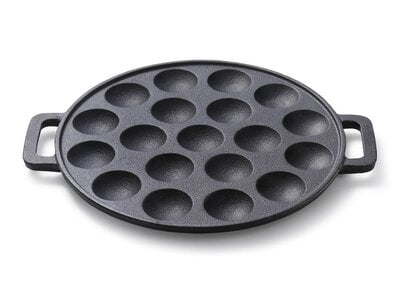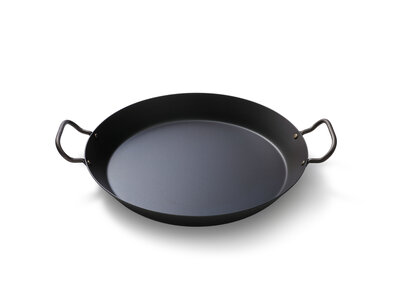Pans
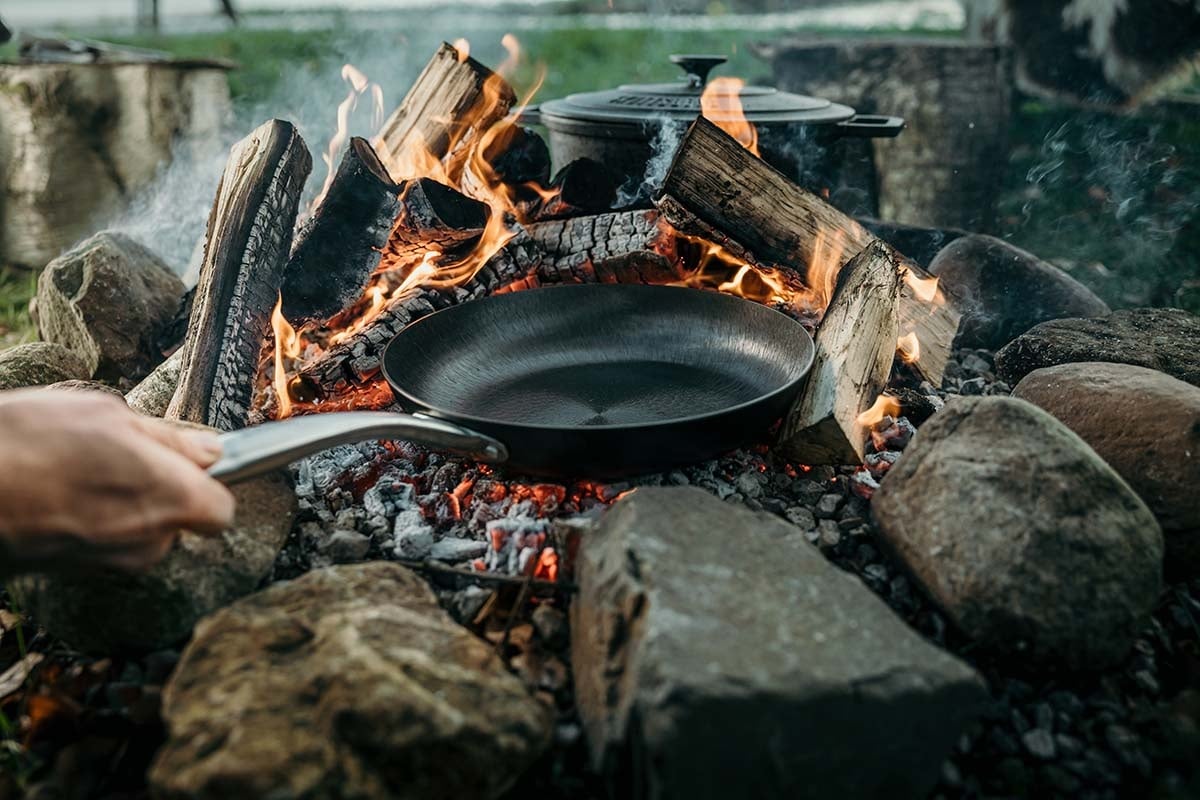
Invest in a Skottsberg pan for a lifetime of enjoyable cooking
With Skottsberg, you are guaranteed a lifetime warranty. So, why wait? Our cast iron and carbon steel pans have a non-stick vegetable oil coating. And our stainless-steel pans are completely free of any unhealthy non-stick coatings. This can only be beneficial: a Skottsberg pan is ready to use straight from the packaging and PFOA-free!
Different types of cookware materials
What types of cookware materials are there? And which material pan best suits your needs? In your search for a new pan, you will be inundated with different types of materials such as ceramic, cast iron, Teflon, aluminium and so on. At Skottsberg, we have limited it to three different types of materials, i.e., cast iron, carbon steel and stainless steel. Still want to learn more about the various types of materials and the differences between them? In our blog article, we provide an explanation of the different cookware materials.
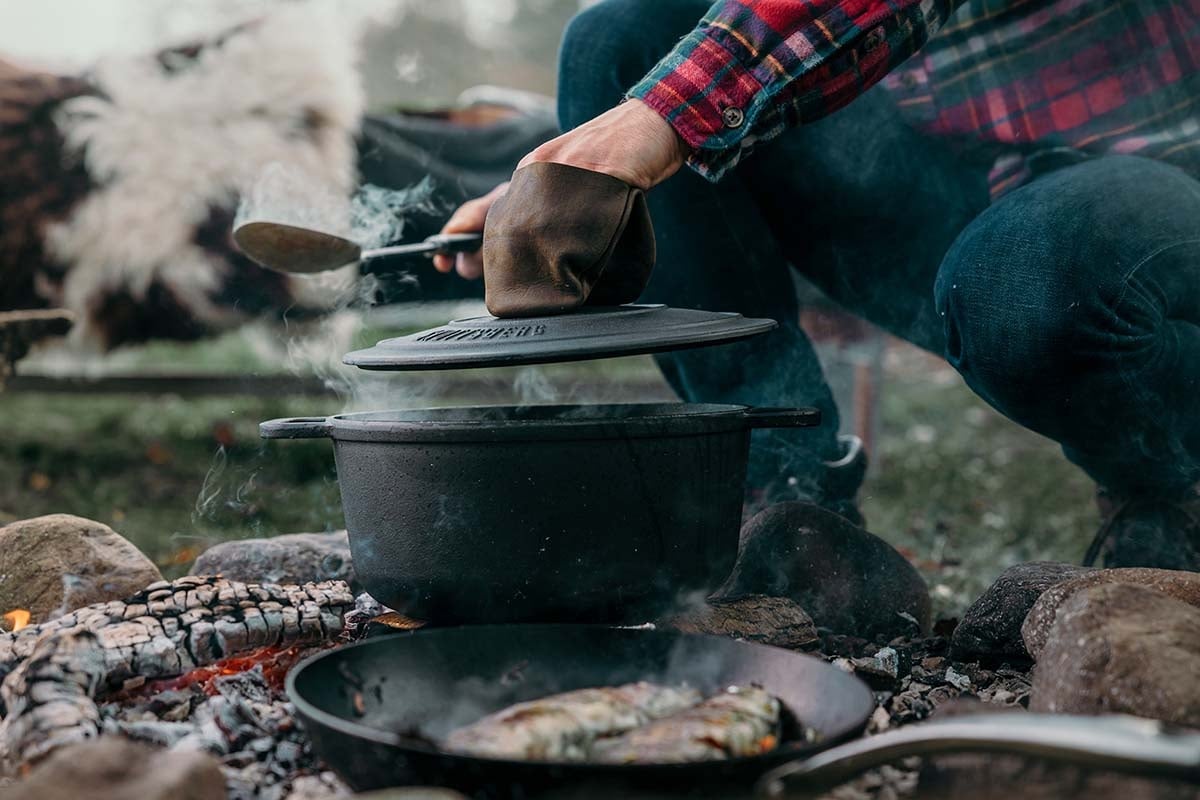
Cast iron

Carbon steel
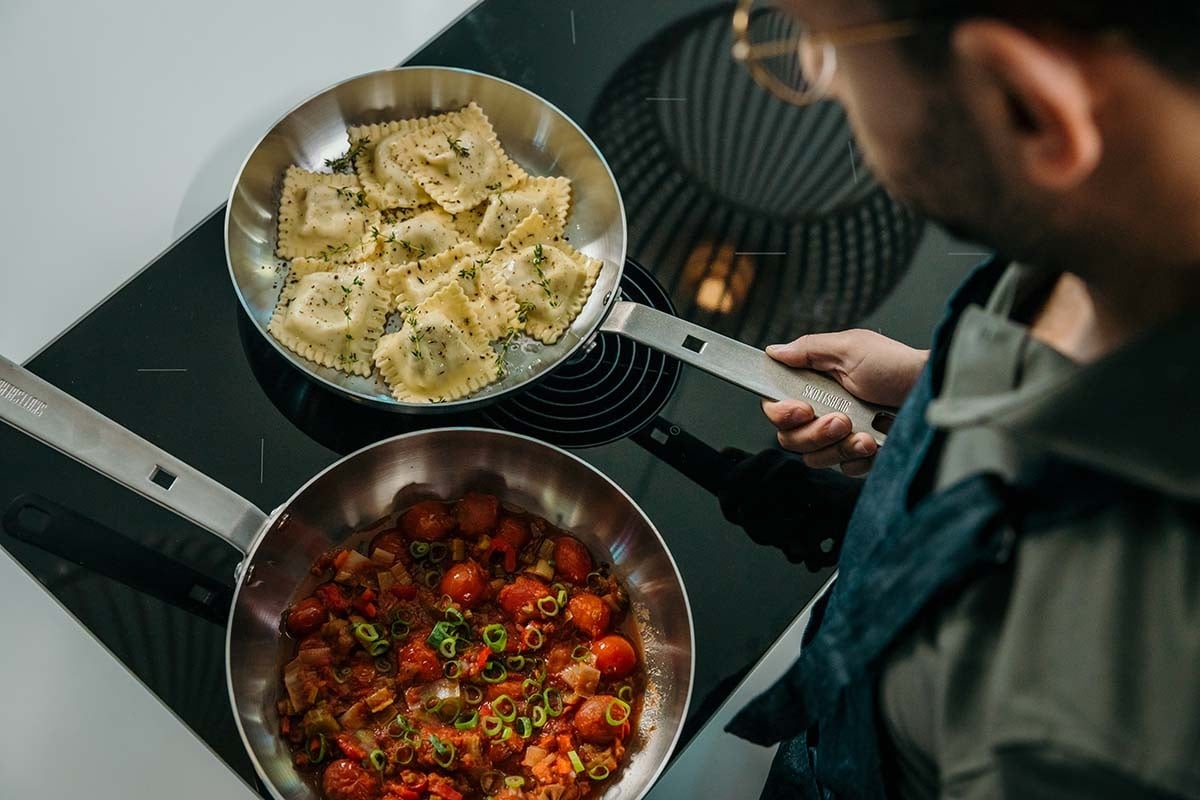
Stainless steel
A non-stick coating stops your food from sticking to the bottom of your pan. Nowadays, you'll find all kinds of pans on the market with different types of non-stick coatings. Some have a plastic non-stick coating, others a natural non-stick coating and there are even pans with a ceramic non-stick coating. Make sense? Pans with a plastic non-stick coating are probably the most well-known because they are easy to use and maintain. A pan with a natural non-stick coating requires more care but is healthier and longer lasting. You will discover more about the different non-stick coatings in our blog article.

Did you know that each metal reacts differently when used on different heat sources such as gas, electric, halogen or induction? If used incorrectly, your pan can even warp. A real shame, in our opinion. But rest assured. Skottsberg pans conduct heat like the best and are, therefore, ideally suited to all types of heat sources. You can safely put your pan in the oven, too. Our cast iron and carbon steel pans can even be used on a bbq or open fire.
As well as the choice of materials, there is also the type of pan to consider. For each material type, there are different pan types: frying pan, wok/wadjan, casserole, skillet, grill pan, crêpe pan, party pan and even a Dutch mini pancakes pan.

With a Skottsberg pan, you'll want to get straight to work. And you can. Because our cast iron and carbon steel pans are pre-seasoned, they are ready to use straight from the packaging. Just rinse your pan with hot water. The same applies to stainless steel pans. In fact, these pans don't have any non-stick coating whatsoever and can also go in the dishwasher before using for the first time. Want to know more about what to do before first use? Read more here.
Needless to say, you want to maintain the friendship with your pan for as long as possible. And even though you may be a chef, there are a few points to consider when cooking with a Skottsberg pan. It's important that the meat is always at room temperature. And never turn the heat source up too high to avoid thermal shock. Interested in more tips when cooking? Read about it on our blog.
A Skottsberg pan is yours for life. But under one condition: maintain your pan well. Cast iron and carbon steel pans should never (!) be put in the dishwasher. Similarly, to protect the longevity of your stainless steel pan, it's better to wash it by hand every now and then. Want to make sure your Skottsberg pan lasts a lifetime? Find out more about maintenance tips here.
Cleaning is never fun. Especially when you've already spent hours in the kitchen. That said, it's important to give your pan some attention after cooking, too. Make sure your pan is bone dry after cleaning, don't leave your clean pan to air dry on the worktop! This prevents rust and, as such, even more cleaning. Want to know more about cleaning your Skottsberg pan? Read more here.
Let's be clear: cast iron and carbon steel pans can be re-seasoned. Whereas a stainless-steel pan can't. Re-seasoning a cast iron or carbon steel pan improves the natural non-stick coating in the pan. Re-season your pan with a natural oil on the hob or in the oven. Wondering how? Follow our 7 easy steps to re-season your cast iron or carbon steel pan.
Your cast iron or carbon steel pan may develop some rust spots over time. But rest assured. A little rust in your pan won't hurt. A scouring pad and a drop of warm water will go a long way towards making your pan rust-free. Follow our 4 simple steps to remove rust from your pan.
Still finding it hard to choose?
Pick up the phone and call +31 (0)541 581 690 or e-mail [email protected]. We'd be happy to help you choose the right pan!







